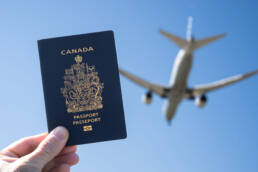When it comes to international travel, understanding the rules and regulations is crucial to ensure a smooth and hassle-free journey. For individuals planning to visit the United States under the Visa Waiver Program (VWP) through the Electronic System for Travel Authorization (ESTA), it’s important to be aware of the guidelines regarding permissible activities. One area that often raises questions is after-sales service.
What is ESTA & the Visa Waiver Program?
ESTA is an automated system implemented by the U.S. government to pre-screen travelers before their departure to the United States under the VWP. It allows citizens of certain designated countries to travel to the U.S. for tourism or business (B-1 or B-2 category visa purposes) without obtaining a traditional visa for tourism or business purposes, provided their stay does not exceed 90 days.
Citizens of the following countries are eligible to travel under the VWP with an ESTA: Andorra, Australia, Austria, Belgium, Brunei, Chile, Czech Republic, Denmark, Estonia, Finland, France, Germany, Greece, Hungary, Iceland, Ireland, Italy, Japan, Latvia, Liechtenstein, Lithuania, Luxembourg, Malta, Monaco, Netherlands, New Zealand, Norway, Portugal, Republic of Korea, San Marino, Singapore, Slovak Republic, Slovenia, Spain, Sweden, Switzerland, Taiwan, and United Kingdom.
Permissible Business Activities under VWP
The VWP encompasses a variety of activities related to conducting business in the United States. Some examples of permissible business activities while in the U.S. on the VWP include:
- Consulting with business associates
- Attending a scientific, educational, professional, or business convention or conference
- Attending short-term training (you may not be paid by any source in the United States with the exception of expenses incidental to your stay)
- Negotiating a contract
It is important to note that these activities are typically short-term in nature and should not involve employment or payment from a U.S. source, except for certain specific cases.
Understanding After-Sales Service under ESTA
After-sales service is not expressly prohibited in the regulations that govern the VWP, which encompasses the ESTA. The regulations state that “the VWP provides for visa-free travel by nationals of designated countries coming to the United States for tourism or business (B-1 or B-2 category visa purposes) for a period not to exceed 90 days.” The regulations also classify after-sales service as a “business activity classifiable B-1.” As such, after-sales service appears to be permissible under ESTA guidelines.
Given how broad the classification is, an applicant coming to the United States to install, service, or repair commercial or industrial equipment or machinery purchased from a company outside the United States, or to train U.S. workers to perform such services should be able to do so with an ESTA. However, the contract of sale must specifically require the seller to provide such services or training, and the visa applicant must possess unique knowledge that is essential to the seller’s contractual obligation to perform the services or training and must receive no remuneration from a U.S. source.
Important Considerations
While after-sales service appears to be permissible under ESTA guidelines, it is essential to consider certain factors to ensure compliance:
- Short duration: After-sales service activities should be of a short-term nature and typically not exceed the 90-day limit allowed under the VWP.
- No local employment: Engaging in after-sales service should not involve working for or receiving payment from a U.S.-based entity. The activities should primarily focus on supporting the customer base and maintaining the products or services previously sold.
- Genuine business purpose: It is crucial to demonstrate a genuine business purpose for the after-sales service activities. This could include addressing technical issues, providing training, or fulfilling contractual obligations.
- Documentation: Maintaining appropriate documentation, such as invoices, contracts, or service agreements, can help substantiate the purpose and nature of the after-sales service activity, if required during immigration inspections.
If you have any questions, please contact our office today to set up a consultation with an attorney!
Ready to have Berardi on your side?
Whether you’re a business looking to hire or a professional hoping to relocate, immigration law can be complicated. But you don’t have to do it alone. Put our experience to work for you.



